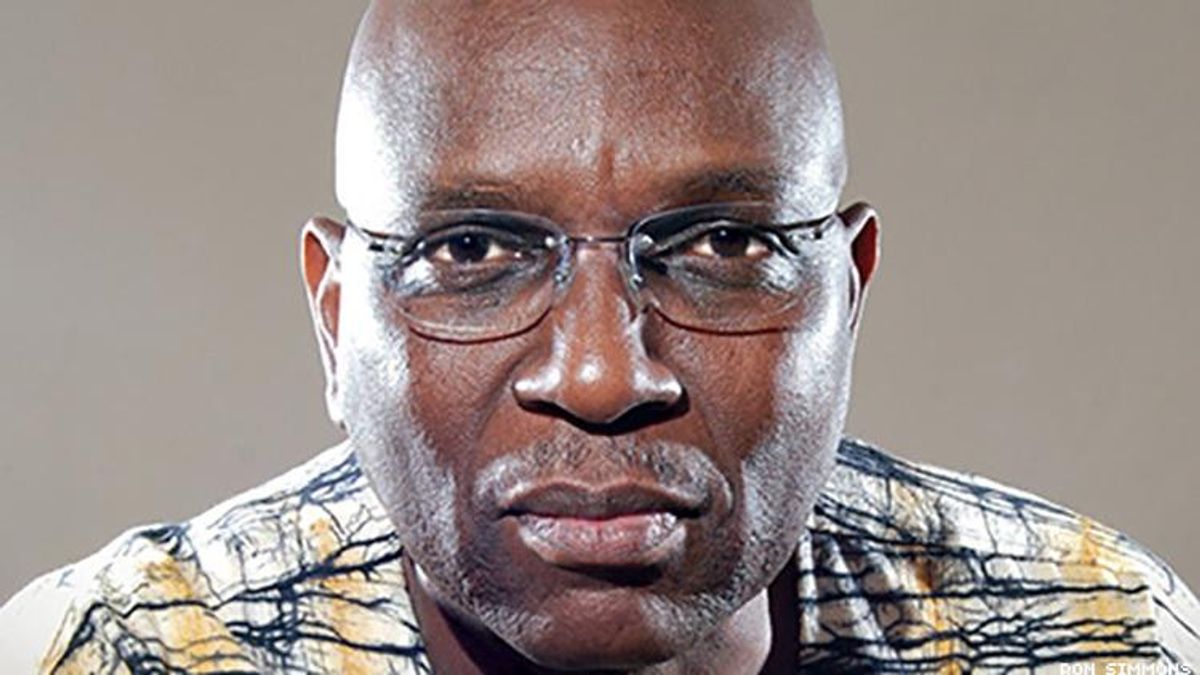News
He Left Us Better Than He Found Us: Remembering Activist Ron Simmons

Simmons believed that the "lives of black gay men are valuable and all of his work in HIV was an extension of that sacred belief.”
June 08 2020 4:50 PM EST
By continuing to use our site, you agree to our Privacy Policy and Terms of Use.

Simmons believed that the "lives of black gay men are valuable and all of his work in HIV was an extension of that sacred belief.”
The passing of Dr. Ron Simmons has inspired a number of tributes and testimony commemorating his cherished legacy. He was our mentor, our guide, our griot, and most importantly a cherished brother. His courage and brilliance touched so many.
Born in Brooklyn, N.Y., in 1950, as a teenager he would learn photography, a skill that would play an incredible role in his later life as documentarian and witness. He would attend college at State University of New York at Albany where he initially became politicized, engaged in anti-Vietnam War actions and early gay rights activism, all while studying Afro-American Studies. Additionally, as a student, among his many accomplishments, he would edit the yearbook. In an interview with The Washington Blade he would remember those days and his time as a student activist:
“The yearbook was dedicated to what I called the silent majority, and I said that includes blacks, homosexuals, prisoners, and poor people. That’s where I was coming from.”
He would also pen a column for the student newspaper called “F****t Tales,” written from the perspective of a Black gay male, of which he would say, “The gay students hated it. The black students hated it. But it was really a funny column.” This early iconoclasm would become a thread throughout his life.
In the summer of 1980, Simmons would move to Washington, D.C., and continue his academic pursuits at Howard University, after having completed two master’s degrees at SUNY Albany. He would remain at Howard, as a professor, and become an important part of the Washington, D.C., Black LGBTQ+ cultural landscape. In these years he would meet Marlon Riggs and collaborate with him on his masterpiece, the film Tongues Untied, where he was the still photographer and the Washington, D.C., field producer. But it was his role in the film’s cast that Simmons would quip, “My performance should have gotten an Oscar for the best homophobe played by a homosexual,” in an essay he wrote for the anthology Black Gay Genius.
As a public intellectual, Simmons would produce his towering essay in the anthology Brother to Brother, “Some thoughts on challenges facing black gay intellectuals,” that provided the political clarity many of us were seeking. Through this essay, Simmons started building word by word, a political and intellectual home that many of us would later enter, following in his footsteps.
He wrote, “Black men have been taught for hundreds of years that they are worthless. Yet despite this, black gay men love each other.” He goes on to call for coalition building and a broad and inclusive political agenda for the Black community. Annette "Chi" Hughes, also a part of the D.C. Black LGBTQ creative scene says of him and his legacy, “Ron's life work included the co-creation of spaces and ideologies that uplift Black LGBTQ communities. He left us better off than how he found us.” A productive writer, Simmons would publish a number of written works over the years, but it is his essay in Brother to Brother that many of us recall first providing the language to express our dissent.
Simmons' leadership of Us Helping Us, his immense contributions to the HIV justice movement, and his speaking out as a Black gay man living with HIV, created a blueprint for so many leaders and organizers. Monte J Wolfe, Brave Soul Collective Artistic Director, who previously worked with Simmons at Us Helping Us, says of him, “One thing I’m grateful for as a result of having known Ron and working with him is the importance of messaging, especially as it pertains to black gay men and our worth. He believed firmly that the lives of black gay men are valuable and all of his work in HIV/AIDS prevention and outreach in one way or another was an extension of that sacred belief.”
Bryan E. Glover, Deputy Director of Grants and Programs at the Bronx Council on the Arts, also worked with Simmons at Us Helping Us remembers his influence, “Working with Ron was always interesting. He was full of ideas and brilliant in his approach to things,” and goes on to say, “I am grateful to have been one of the many he influenced in a positive way.”
Simmons retired from Us Helping Us in 2016. In 2017, he started his own company, Ron Simmons Consulting, LLC, and developed the Bodemé workshop, a sexual health intervention for young Black gay men. Of his commitment to intergenerational work, Justin Smith, director of Campaign to End AIDS at Positive Impact Health Centers, says, “He modeled the type of inter-generational support and guidance that is vital to Black gay men's communities, as well as an exemplar of what it means to live a life of service to your people.”
Ron Simmons has now joined the great Black gay pantheon of giants in the ancestral realm. We are grateful for all that he left to us, this beautiful legacy that we can draw from to continue to build and continue to develop.
Charles Stephens is the Founder and Executive Director of the Counter Narrative Project (CNP).